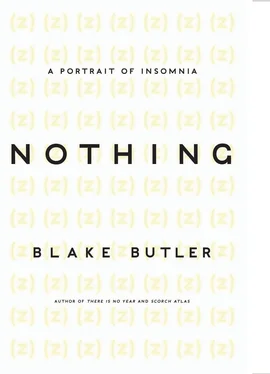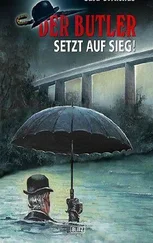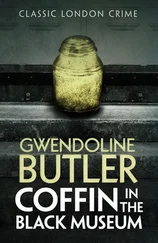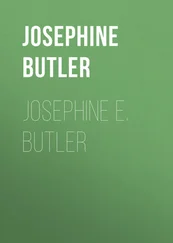John Cage reckons this silent, destructive expanse of nothing one step further in his “Lecture On Nothing,” which opens with its own collapse:
I am here , and there is nothing to say
This sort of nothing, though, has definition, structure, interior lattice, flow:
there are silences and the
words make help make the
silences.
This space of time is organized
.
Cage’s simultaneous acknowledgement of the nothing’s presence, and, within that presence, a nameless architecture that both makes the utterance futile and gives it shape, lend to the entire program a kind of noiseless pressure, an expectation both of the nothing itself and where the nothing seems to lean toward a break. The lecture continues in this strange progression, asking questions with no answers that then turn the frame onto itself, acknowledging the circular, independent, vexing, self-destructing mirror-hole of time. Each confrontation of the silence and its hidden, underlying structure evoke in the wandering field that is created a kind of insistence of the necessity of this blanking for the self’s manifestation in the face of void: a pattern in the arbitrary that perpetuates because it is . The question begets another question not in hope for clarity, but to construct: an eternal definitionless field amassing around what is not there. To try to define such space would only there negate it further, to bend it deeper there where it is not.
In the third unit of the four-part talk, Cage’s text enters into its own sort of repetitive blanking in and out, circling its self-aware and therein hybrid empty center, repeating interweaving variations of small phrases, punched into the pattern of a frameless, blank collage: “More and more / we have the feeling / that I am getting / nowhere,” he says, again and again. But also: “That is a pleasure / which will continue.” The nothing moment, then, is fed into the self as the self itself, and it is a joyful being rather than some guidebooked idea we are forced to press against. The effect acts to rather defuse what could be immortal terror in the way when one is told they must relax when they clearly can’t relax, unto a resignation to the futility of self, which once invoked, allows a kind of interior freedom, functionally useless but existing nowhere else but in the self — the same way that in resigning the control of ego to the unconscious we are rested and forced against the things we otherwise might never wear: the rolling boulder, the room’s awakening, the memory of people we’d forgotten, or who exist only in the dreamholds of the head . The sleepless mind allows at last, away from waking onslaught, some brainless shape to bloat inside of, blanking out against such daily sinking into the want of warmth and light, rubbed and rubbing around no center. One is left at last, without sharp signal, endlessly upon some nameless cusp evoking both strange pleasure in its presence and terror in its refusal to come on.
]
]
]
The longest I ever couldn’t sleep at once was 129 hours, through the turning of the New Year into 1999. I was living in the ex — master bedroom of my childhood home, the same room, likely, where I’d been conceived twenty years prior. The house since then had grown — six new rooms added to its dimension in my preteens, boxing in more air around. My bedroom’s only two windows faced a small work shed my father called “The Building”—for younger years I’d both feared The Building and somehow hoped to some day live inside it, in its small and gloaming light. Often, awake with nowhere else to look beyond my window, I would feel sure I’d seen someone there inside that other, parallel pale, watching from behind a glint of moonglow, there just as quickly gone.
This certain week inside that week I’d come down sick with mono. My face swelled and my body bubbled sore. Hard to drink or think or move mostly, in which case most similarly afflicted should be sleeping, and yet I, inside my room, could not turn me off. My brain, as if in cycling against the medical commandment, Get as much rest as you can , insisted each hour to stay cycling, drawing days on. I saw clocks even when I closed my eyes, drummed with the slow pulsating idea that any second might be the one in which my self ’s sound might finally become silent, slip to nowhere, become gone. Instead I saw colors, prisms, tunnels, smudging; the room packed full of eyes; the light sometimes from TV alone at 4 AM like a long and grossly narrow hall. I lay on the bottom half of what once had been a bunk bed, a thing I’d begged for years ago for Christmas though there was no one there to share it with, as if in the night I split into two and needed both, terrified by the way the room around me, in those hours, seemed as well to bore new holes in the walls.
Also visible from the room, via its two other glassy surfaces, were (a) the kidney-bean-shaped swimming pool where as a young child I nearly drowned, my mother having turned one moment in the light to look at something elsewhere and turned back to find me having somehow flipped facedown, and where in later years I would spend whole days of whole long summers underwater trying to hold my breath so hard I could turn hard myself inside and be thereafter able to walk beneath the nothing, breathing, in my flesh, though I clearly never did; and (b) through the small slit of window just above my bathroom’s toilet, with one small latch clasp holding it closed, a view that mostly for most years would be obscured by brush growth from the plants that grew beside the house, obstructing the backyard. Only from certain angles and by leaning could you get any bit of sky inside that frame, and, when the bushes had been trimmed back, the right side of our next-door neighbor’s house, where a very large man lived with his old mother — the two of them together inside that small, encrushed house for years with a lawn that grew up and over and would die. In that grass once I found a skateboard I rode until it made me fall and drew my blood out. I also found a black softball bat I would in some evenings hold against me when sounds inside the house and through the walls would stir, waiting for something to come out so I could crush it — something nameless — it never came.
For all those years and since then I’ve never seen an inch of the inside of the house of those nearest neighbors. I’ve seen only the mother and the man inside there come and go, mostly just the man, coming out to climb to stand inside the backyard and look at nothing, or once to get on the roof and fix the antenna to the TV. How in that time he’s shirked the cells off of his body from at least 350 pounds down to near now around 220—a shrinking of self much the way I had, years before him, just next door — as if, in the years between, we’d shared a cyst, a giving-of into a void. How now, seeing him wobble from the garage door down the drive, I cannot help but imagine his home lined with that old meat, hung on the walls, a padding against light and outside sound there, he and his mother. Some days in his thin afternoons he comes out and stares through the fence at my sister’s barking dog, staring hard and wordless into the dog as if to burst it from its center, to desist its barking sound.
Between these three exits from this bedroom there would be enough conduit-space therein that at any given hour in my night there could be something coming in or peering in into me without me knowing, and this does not include the vents, the phone lines, the eventual internet connection, the holes too small for me to see at all. These openings inside my room, without sleep defense image, seemed to stretch over all the air. By the third day of staying awake panels of color began to appear over my bed and beyond my doorway, floating scrims of ghosting color that would dissipate as I moved toward them in my flesh. Other times the color would form dots or ovals on my vision which then would bloom to globes or sink away. Space became not a system of dimensions but a kind of substance one could mold, if in the whole exhaustion feeling too far sunk in to manipulate even my eyes — thus, a twofold kind of shifting: seeing more and knowing less.
Читать дальше












